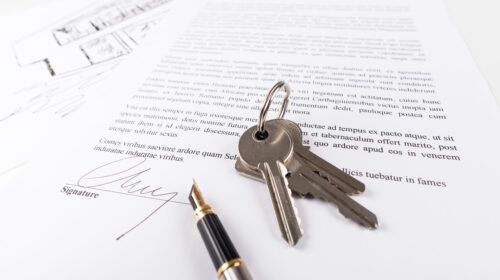Is Your Business Ready to Own its Real Estate?
While there is a huge, growing trend toward being able to work remotely, it comes as no surprise that the majority of businesses today still operate out of some form of commercial space, whether that be a factory, office, or retail storefront (or some combination of these). If you are in the market to launch a new business, or even if you are just thinking of expanding or altering your existing business, one of the first steps you will need to take is in deciding how to finance your commercial real estate.
Most often, this choice comes in the form of either renting or purchasing commercial space. When you purchase commercial real estate, you can either buy it outright or finance it with a loan from a bank or other financial institution. When you lease, you simply rent the term for an agreed-upon amount of time; once this time is up, you must renegotiate the lease if you’d like to stay in the property — at the risk of paying more for the same space.
Not surprisingly, there are pros and cons to both buying and leasing commercial real estate. Several factors should go into choosing the right acquisition strategy for you and your business, including business equity, tax implications, cash outflows, property value and more. To help you make a more informed decision, let’s dive deeper into some of the pros and cons of buying and leasing commercial real estate.
Buying commercial real estate: the pros
- Buying builds equity. If you purchase your property outright, you own 100% of it right away. However, the majority of commercial purchases are financed. Even in this case, your down payment and all of your monthly payments are continuing to build equity in the property — helping to add to the overall value of your business.
- Control. When you own your commercial property, you have complete control over it (for the most part, excluding zoning restrictions). This means that you don’t have to negotiate with a landlord if you want to update or reconfigure the space. You also have greater control over your finances, paying a fixed monthly mortgage that doesn’t fluctuate (unlike rent payments, which can fluctuate every time a lease is renegotiated).
Buying commercial real estate: the cons
- Upfront spending costs. Typically, in a commercial space, you can expect to pay anywhere from 10% to 40% as a down payment — in addition to closing costs and other fees of due diligence. To put this in perspective, for a $2 million commercial property, you can expect to have to come out of pocket $200,000 to $800,000 — just for the down payment.
- Risk of capital loss. Unfortunately, depending on the market conditions, you are always taking a risk in buying that your property’s value will decrease or decline. If this is the case, you may end up taking a capital loss if or when you decide to sell your commercial real estate.
Leasing commercial real estate: the pros
- The ability to focus more on your business. Owning and managing a commercial property can be hard. There are a number of things you have to consider — maintenance costs, insurance requirements, and more. Leasing commercial space gives you the freedom to focus on what you do best — managing your business.
- Added flexibility. It’s a simple fact that qualifying for a commercial lease is often easier than qualifying for a commercial mortgage — meaning that you will immediately have more options when choosing your space. You also have the freedom to move at the end of your lease, if you want — without the added stress and headache of having to sell your property first.
Leasing commercial real estate: the cons
- Rent is costly. It’s no secret — your monthly rental payments will usually cost more than the mortgage payments on the same property. In a typical commercial lease, the tenant is responsible for additional expenses, including monthly insurance costs, property taxes, maintenance costs, monthly utilities, and more. As a result, it can often be more expensive to rent space than to purchase it.
- Less control over the space. If you don’t own your commercial space, your options are limited when it comes to the control that you have. Your lease may have certain restrictions or clauses built-in that hamper your control over the space, you have very limited control over potential rent hikes once your lease is up, and even if you go out of business or close up shop, you may still have to pay off the remainder of your lease — or face stiff penalties.




